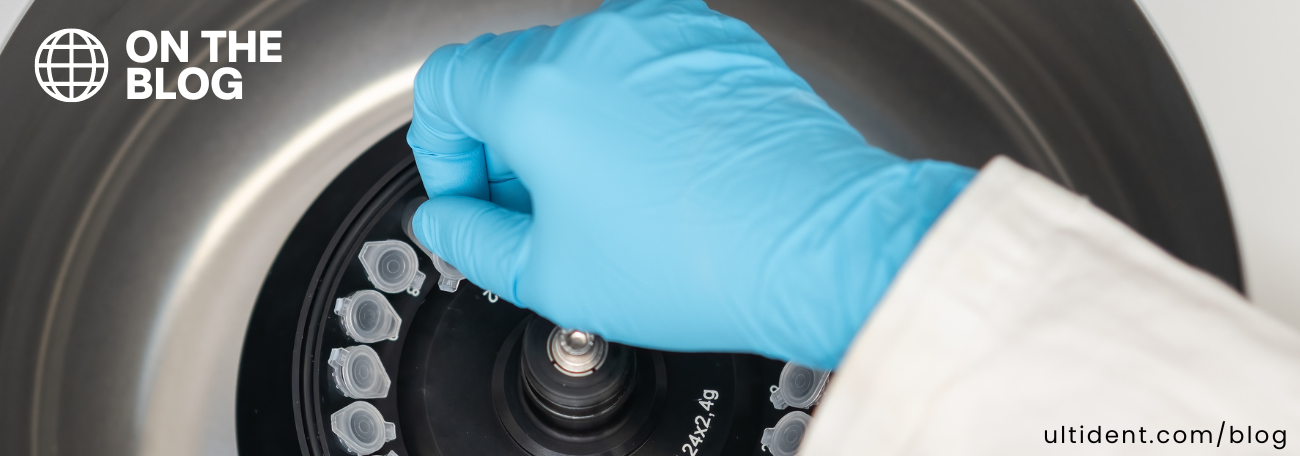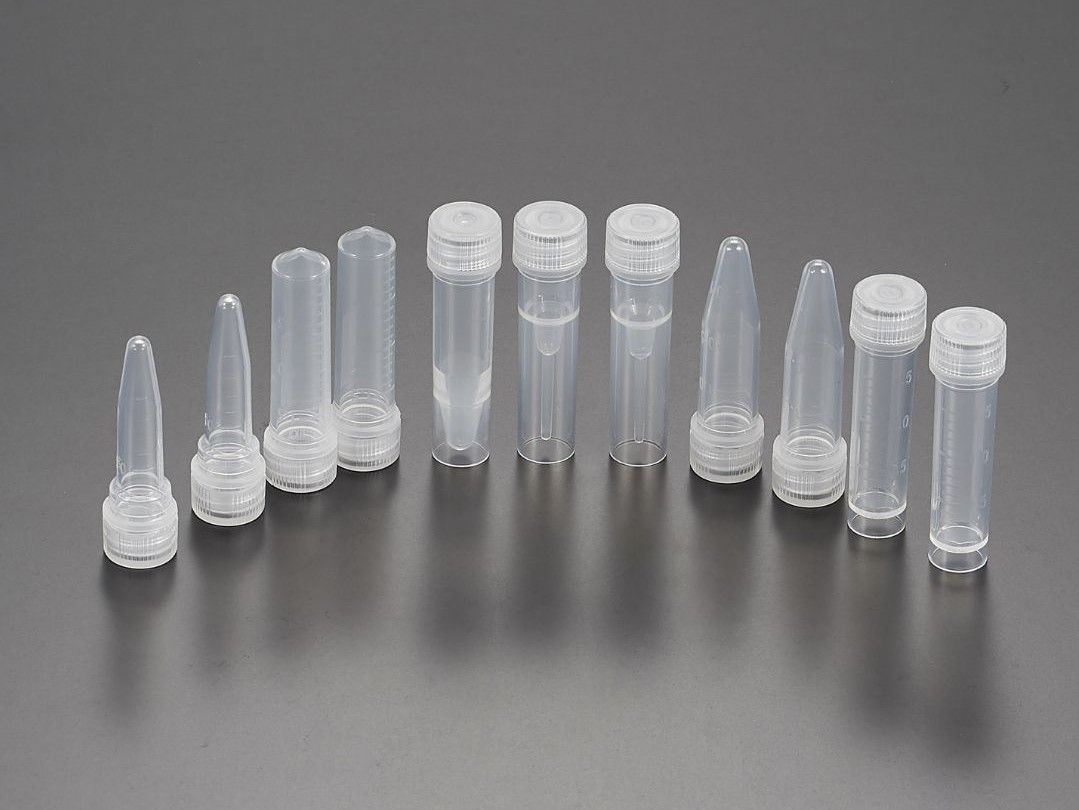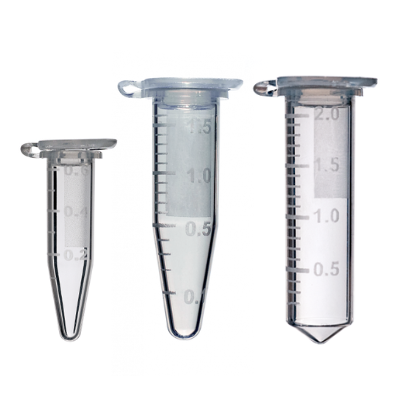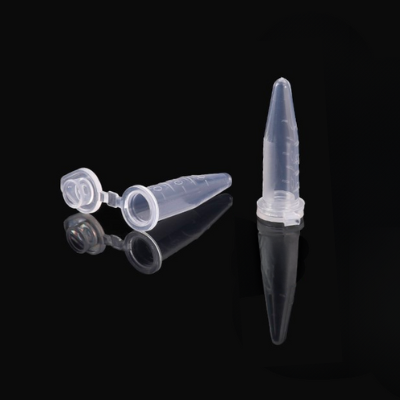Essential Tips for Choosing Quality Microcentrifuge Tubes


Essential Tips for Choosing Quality Microcentrifuge Tubes
Microcentrifuge Tubes (MCTs) are essential tools used in labs worldwide, playing a critical role in molecular biology, biochemistry, research, and clinical applications. However, not all MCTs are created equal, and selecting the right ones can make a significant difference in experimental outcomes. In this guide, we'll explore the essential factors to consider when choosing MCTs – and give you some tips on how to spot low-quality options.
1. Spin Rate
Spin rate refers to the speed at which centrifugal force acts on samples within the microcentrifuge tubes during centrifugation. The force tubes can withstand is calculated in RCF (Relative Centrifugal Force) or G-force and is measured in x g (times gravity). Choosing tubes that cannot withstand the required spin rate can lead to softening, swelling, stress-cracks or even tube rupture.
What to look for: Looking at the x g rating of specific tubes can help you gauge the quality of the tube (higher x g = higher quality). Opting for tubes with higher spin rate capabilities is recommended in laboratory settings where a single tube may be used for various applications. By choosing tubes with a high spin rate tolerance, you ensure versatility and reliability across a range of experimental needs.
2- Thermal Resistance
Thermal resistance in MCTs refers to their capacity to withstand extreme temperature fluctuations without compromising their structural integrity or the integrity of samples contained within. Different brands offer different temperature resistance on their tubes. It’s important to note that, with very few exceptions, almost all polypropylene MCTs can be autoclaved at +121°C, which may be useful if you purchase tubes that are not sterile.
What to look for: Tubes that can handle extreme temperatures are generally higher quality than tubes that cannot. As with spin rate, since most labs buy one tube to be used for many applications it’s best to buy tubes that can handle the most extreme conditions. Investing in MCTs with superior thermal stability ensures consistent results, even under challenging experimental conditions.
3- Type of Seal


The seal type plays a role in ensuring sample security in MCTs. Screw caps offer a secure and leak-proof closure, making them ideal for high-speed centrifugation and long-term sample storage. Conversely, snap caps provide convenience and ease of use, though they may be more susceptible to leakage or sample evaporation over time. Snap caps are therefore only ideal for short term storage, and while they are “functional” to -80°C, once you pass -20°C, we generally recommend using a screw cap tube. Snap caps are also not ideal for applications that require multiple openings and closures of the tube.
What to look for: When it comes to applications demanding heightened sample security, MCTs equipped with screw cap seals are best for mitigating leaks and contamination risks. However, for routine laboratory procedures, snap cap seals may suffice, offering convenience and adequate sealing performance.
4. Other Considerations:
A. Clarity and transparency: High-quality MCTs should exhibit clear and transparent properties, enabling easy visualization of sample contents. When selecting MCTs, prioritize clarity and transparency to enhance experimental precision and efficiency.
B. Sterility and purity: When shopping for sterile tubes, the most important thing to consider is how the tubes were sterilized. Gamma sterilization stands as the gold standard for MCTs, effectively eliminating DNA and ensuring no chemical residue remains. Purchasing tubes that are certified RNase, DNase, and pyrogen-free further ensures that the tubes are safe to use in microbiology applications. (For information about sterility or purity certifications on any of the products we carry, you can always contact us at sales@ultident.com)
C. Conical Vs. skirted tubes: The choice between conical and skirted tubes comes down to rotor adaptability and ease of handling. Some centrifuge rotors may be more adaptable to conical tubes, while self-standing/skirted centrifuge tubes offer easier cleaning and handling.
D. Supplier reputation: When procuring MCTs and other lab consumables, it's crucial to partner with a knowledgeable and reputable source that prioritizes product quality and stands behind their offerings. With over 30 years of experience, Ultident Scientific has established itself as a trusted supplier of laboratory equipment across Canada. By selecting consumables from reputable suppliers like Ultident Scientific, the scientific community can confidently navigate these intricacies, ensuring the integrity of their experiments and the reliability of their results.
Conclusion:
Microcentrifuge tubes are essential tools in the laboratory, but their quality and performance can vary significantly between brands and types. Opting for high-quality MCTs such as PROGENE™ Premium Boil-Proof Microtubes, PROGENE™ 71-Series Screw-Cap Microtubes, Sterile, or UltidentBrand Microcentrifuge Tubes is vital for ensuring the success of your research or clinical work. Choose wisely, and let your experiments thrive!
If you need personalized advice on choosing the right MCTs for your specific applications, don't hesitate to reach out to our team today at sales@ultident.com. We're here to provide expert advice and help you achieve optimal results







